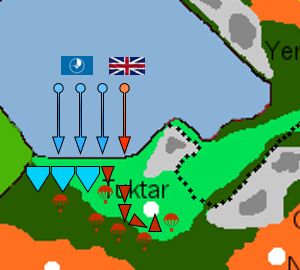"Who do you work for?" the officer questioned the mercenary who was struggling to keep balanced as his wounds were taking their toll. He didn't answer initially which the officer nodded to one of the soldiers holding him. The soldier to his left punched him in his gut as the mercenary yelped in pain in return.
"I said." the officer paused and then continued. "Who do you work for?" he asked the question again and got a response as the mercenary mustered what strength he had to speak. "T-arn.." he said shallow like as the Officer snickered and looked around at the havoc created.
"Come to save your brothers in arms?" the Colonel started laughing in the face of the wounded mercenary as he dispatched a single Prussian brand cigarette and smoked. He blew a cloud of smoke in the man's face, the mercenary could hardly stand and was losing blood still as he had yet to receive medical attention. The colonel then waved his hand as he walked away from the mercenary, the two soldiers holding him dropped him to the ground before aiming their weapons at his broken body. They executed him on the spot with a combined short burst of machine gun fire riddling his body in a shower of lead. The colonel had then ordered that any one left alive were to be killed in the same fashion and reconnaissance elements of the regiment had already been dispatched to scower the surrounding camp perimeter for any clues of the prisoner's whereabouts. Eventually tire tracks and other signs of movement were discovered as forward recon elements discovered a near by road that may be the path that the attackers and probably most of the prisoners went along to.
The regiment quickly began to take the road although it had forward elements lead the way by a few kilometers in order to better inform the rest of the regiment on the whereabouts of the missing prisoners and the attackers. Although the regiment would take some time before actually catching up with the convoy but the Cyclone reconnaissance hunter drones that were released to follow the path the convoy had taken were already in the sky above the convoy and as quietly they could watched the large moving convoy for where they were going next.








